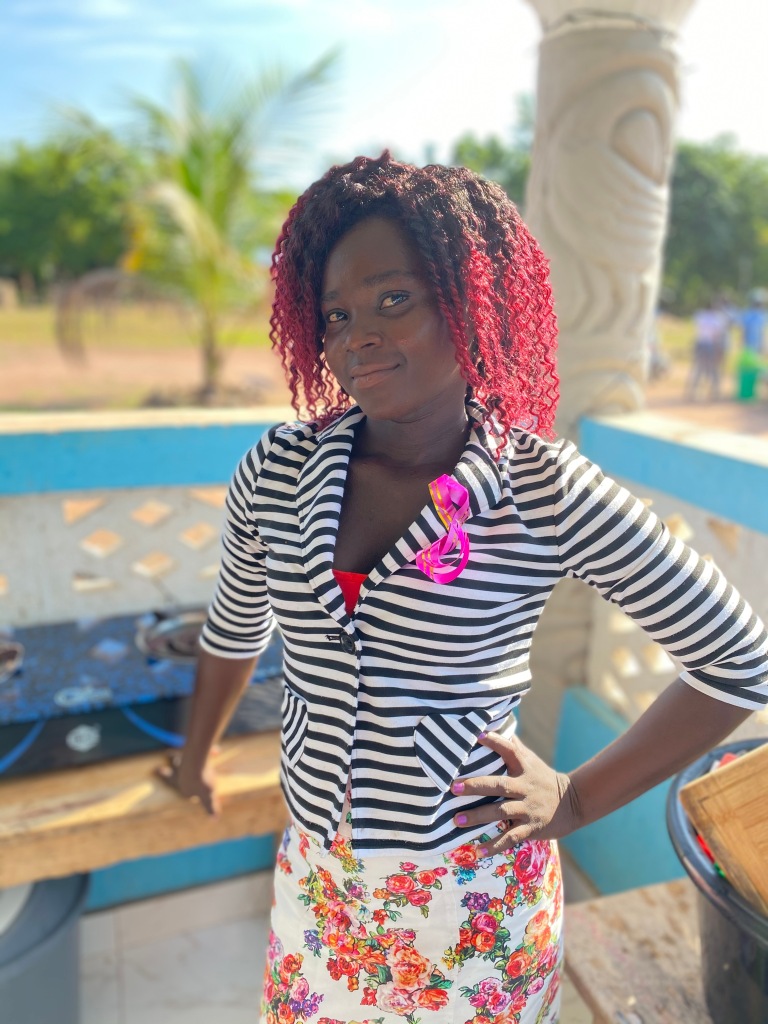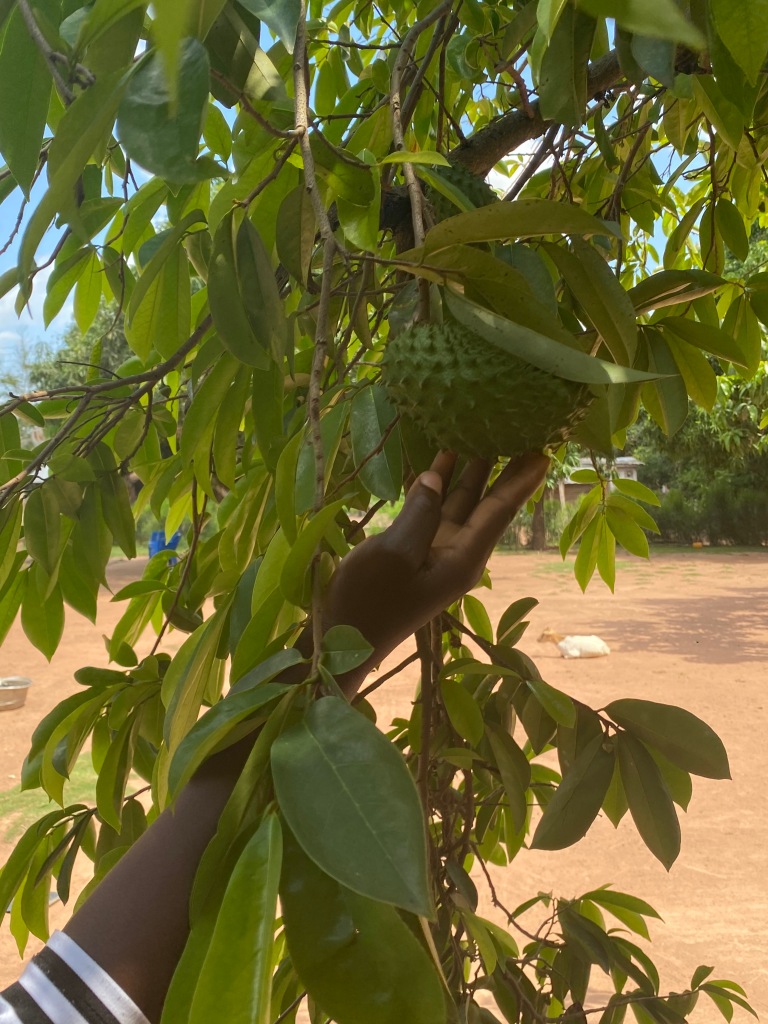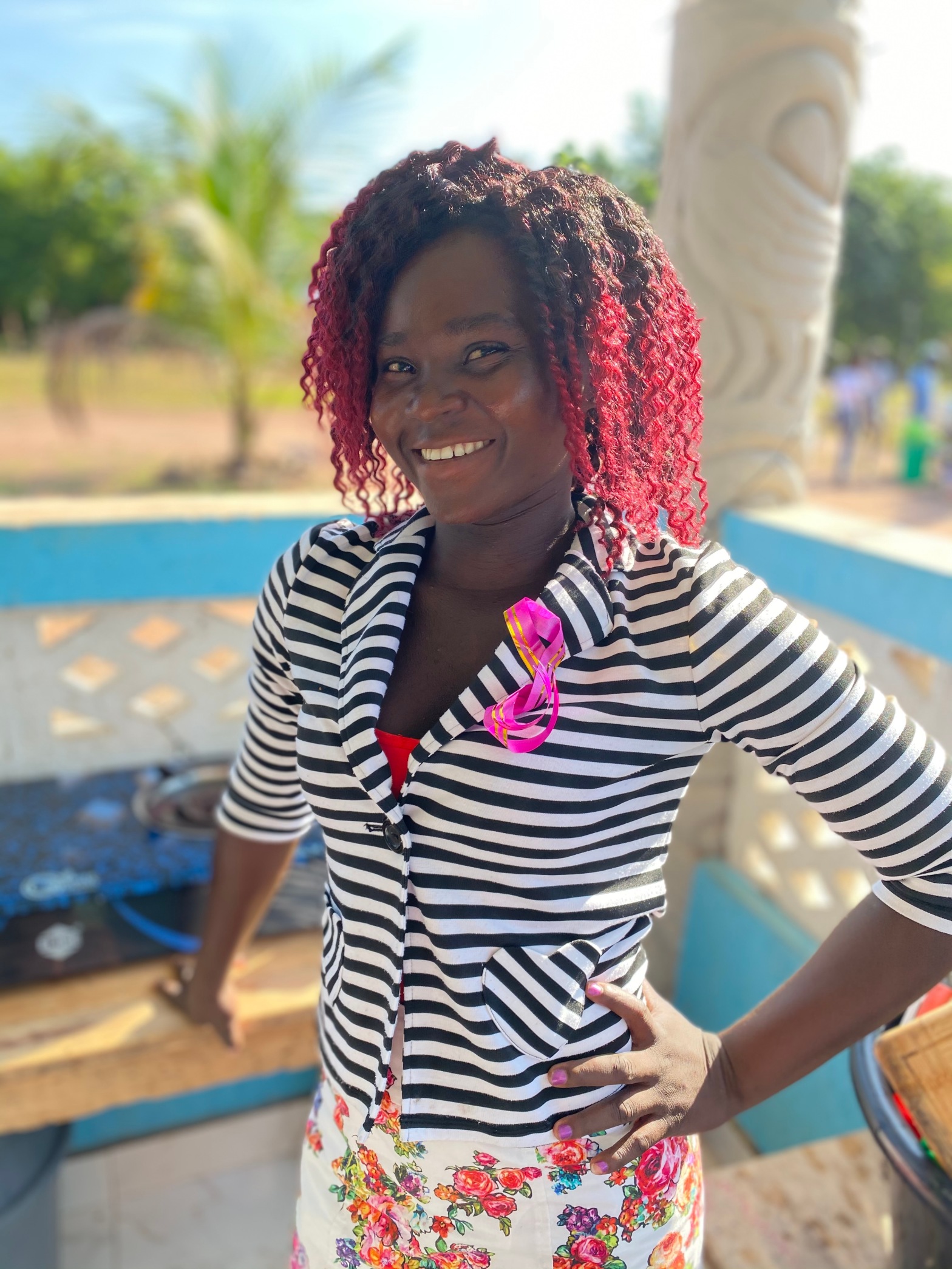

As soon as the boarders were open, I decided to go on an overdue trip to provide health education and outreach in Ghana. While there, I met a young lady, Mary, who was excited to share with me what she recently learned at her church’s Breast Cancer Awareness Month event.
Mary and I discussed risk factors, signs and symptoms, how to do a self-breast exam, and what she learned about breast cancer in the United States. Because I wanted to learn specifically about breast cancer in Ghana, I decided to ask Mary a few questions.
Tonja: What did you learn about breast cancer here in Ghana?
Mary: Breast cancer in Ghana has increased every year. The last two years, it has increased. But, if a woman has a lump and it is detected early, the cancer can be removed, so that she can be free from cancer.
Tonja: Do women here go to the doctor to get a breast exam every year?
Mary: You know…in Ghana, most people feel shy to go to the doctor, or maybe they don’t go because of low income. They may be afraid that if they go to the doctors, they’ll be charged and not have the money for it. They may think, “Why would I force myself to go to the doctors without having money,” so they don’t go. Those who have money in big cities like Accra, Kumasi, Cape Coast, they may pay and have health exams. Those who have family that work at health facilities may also get checked.
Tonja: Do you think there is anything that can be done to make people feel less afraid or shy of getting a breast exam?
Mary: If someone has a family member that works at the doctor, and they are diagnosed, they may be afraid that the news will spread. If possible, avoid going to a doctor where you have a family member or know someone.
Tonja: Do you think the stigma of breast cancer is just as bad as having HIV?
Mary: Yes. For example, if you have breast cancer and have to have your breast removed, people may stare and talk because it is different. We don’t really see that. People will talk.
Tonja: What do you think can be done for more women to get checked and decrease stigma?
Mary: I think more breast cancer awareness. It gives women education and information about breast cancer and helps them to know they can get help. Women can also get to know that they need to have their breast checked each year.
One thing that I’ve learned about being in Ghana is how many people view food as medicine. Mary also learned about the benefits of eating a variety of local fruits and vegetables to lower a person’s risk of developing breast cancer.


Fast Facts about Breast Cancer in Ghana
- Breast cancer is the most common type of cancer in Sub-Saharan Africa
- Breast cancer is diagnosed at early ages across Africa than on other continents
- The highest incidence rates of breast cancer in Ghana is for women ages 40 to 46
- Forty-seven to 57% of breast cancer cases in Ghana are women diagnosed under 50 years of age
Source: Iddrisu, M., Aziato, L. & Dedey, F. Psychological and physical effects of breast cancer diagnosis and treatment on young Ghanaian women: a qualitative study. BMC Psychiatry 20, 353 (2020). https://doi.org/10.1186/s12888-020-02760-4
Because of health observances like Breast Cancer Awareness Month, people all over the world are seeking knowledge, gaining knowledge, and making small changes; and in my opinion, combating stigma little by little.

I want to talk to a doctor
LikeLike
Hi Salamatu, I was out of the country for a few months and did not check my blog. I’m a health educator and not a doctor. I develop health programs/workshops and provide education on health topics. If you haven’t already, I suggest you reach out to your nearest clinic.
LikeLike
When is the next breast cancer awareness coming on?
LikeLike
Hi Sala, thank you for your message. I was out of the country for a few months and did not check my comments.
LikeLike